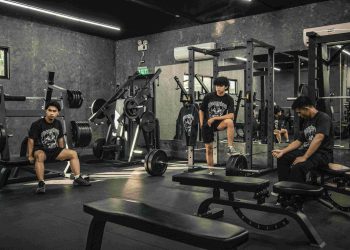Perfect Fit Solutions for Diverse Needs
“One size fits all” is the greatest myth in the modern world.
As individuals, our needs, dreams, and challenges differ greatly. And yet, we often find ourselves forced to adapt to systems and solutions that fail to account for our unique circumstances. It’s time to challenge this antiquated notion and embrace a world where tailored solutions become the norm, not the exception.
Personal Reflections on the Power of Customization
Years ago, I found myself struggling in a work environment that demanded conformity to rigid protocols. As an inherently creative thinker, the lack of flexibility became suffocating. It wasn’t until I began carving out a space for my individual strengths—a “perfect fit” workspace and process—that my productivity soared and my satisfaction returned. This practice taught me an invaluable lesson: a tailored approach unlocks potential.
From my experience, it became clear that this principle extends far beyond professional settings. Whether in education, healthcare, or personal development, the ability to adapt solutions to fit individual needs is transformative. Why settle for pre-fabricated answers when the blueprint for success lies within the details of your unique circumstances?
Challenging Traditional Norms
The traditional wisdom that favors standardization assumes uniformity among people. This is inherently flawed. Human beings are not assembly-line products; we are complex, nuanced individuals shaped by our experiences, environments, and aspirations. Consider the fields of psychology and neuroscience, which reveal how deeply individual differences impact decision-making and learning. Why should we not extend this understanding into every facet of our lives?
Take education as an example. Standardized tests reward rote memorization and compliance, yet studies show that creativity, problem-solving, and emotional intelligence are often more predictive of success. We should question why these outdated metrics persist and push for tailored educational models that empower diverse talents.
Interdisciplinary Insights
Through the lens of technology, philosophy, and business, we observe how customization has revolutionized industries. Algorithms track consumer preferences to deliver personalized shopping experiences, and subscription models adapt entertainment choices to individual tastes. Similarly, philosophy teaches us to value personal autonomy, encouraging us to make choices aligned with our core values rather than blindly following societal norms.
Businesses thrive when they cater to diversity. Tesla, for example, doesn’t provide a one-size-fits-all, generic automobile. Instead, it releases configurability in its vehicles, addressing environmental consciousness, luxury, and innovation in one package. This multidimensionality highlights the importance of recognizing and embracing varied demands.
Predicting Future Trends
Looking ahead, it’s clear that the future belongs to those who can adapt. The rise of artificial intelligence and machine learning will enable hyper-personalization, automating solutions tailored to individual needs in unprecedented ways. Education will become increasingly user-centric, with students leveraging digital platforms to design personalized curriculums. In healthcare, genetic mapping and wearable technology are advancing individualized diagnosis and treatment strategies.
Moreover, societal shifts toward remote work and freelance ecosystems emphasize the need for flexibility beyond the nine-to-five mold. It’s a world that celebrates diverse paths to success, where customization becomes not just a luxury but a necessity.
Practical Steps to Achieving Tailored Solutions
1.
Assess Your Needs:
Begin by identifying your unique challenges and aspirations. Self-reflection is key to understanding what solutions serve you best.
2.
Communicate Preferences:
Whether in work, relationships, or personal goals, express your needs openly to those who may influence the solution.
3.
Leverage Technology:
Use tools like customization algorithms, digital planners, or AI-driven platforms to tailor experiences to your liking.
4.
Experiment:
Don’t shy away from trial and error. Sometimes, finding the perfect fit requires multiple iterations and adjustments.
5.
Advocate for Change:
Push institutions, workplaces, and industries to embrace personalization, challenging rigid norms that stifle progress.
Engaging Questions & Answers
Q:
Why are “perfect fit” solutions important?
A:
They empower individuals to fully utilize their potential by addressing their specific context. Tailored approaches foster greater success and satisfaction while minimizing inefficiency.
Q:
How can organizations shift toward personalized solutions?
A:
By leveraging data analytics, engaging directly with stakeholders, and prioritizing flexibility in policies and product designs, organizations can create adaptive frameworks that address diverse needs.
Q:
Are there risks to customization?
A:
Over-customization can lead to complexity and inefficiency if not managed properly. Balance is key to ensuring effectiveness and scalability.
Conclusion
In the ever-evolving landscape of human needs, a commitment to finding perfect fit solutions is not just beneficial—it’s essential. As individuals, we must demand environments and systems that respect our diverse circumstances. As organizations and innovators, the challenge is to lead the charge in creating frameworks that adapt, rather than force conformity.
The journey toward customization isn’t merely about convenience; it’s about empowerment, creativity, and unlocking the full spectrum of human potential. So let’s step boldly, embrace diversity, and pave the way for solutions that truly fit the lives we lead.





















